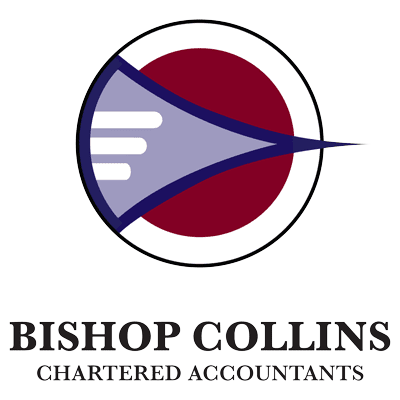I’m going to start this article with a true story about a client of mine that I have looked after for almost 17 years; let’s call this client Joe.
Joe applied for a business loan to purchase a second factory bay for his business. The year was 2007 and we had recently experienced a fairly major property boom (which sounds somewhat familiar). His first factory bay had increased in value and so it looked like he would have around a 20% equity amount against both properties, so he applied for the loan with a second tier lender since the major banks were requiring a higher deposit and he didn’t have the available cash flow in his business.
The value of the two factory bays was around $750,000 and he was getting a loan of $600,000. Joe was originally offered what appeared to be a reasonable loan from the lender with a market variable interest rate which, at the time, was 8.75%.
Joe was paying his repayments on time and was not having any problems with the loan. However, in 2008 after purchasing the property, the global financial crisis occurred and the lender decided to exercise its right to re-value the property which on paper was now worth less than $700,000. This means the loan of $600,000 was now above 80% of the value of the property and subsequently the lender increased their loan interest rate to the default interest rate of around 15%. The loan fine-print stipulated that the lender was allowed to do this, and Joe, with no available cash and no other lenders available given his situation, had no option but to pay the additional interest. This crippled his business for over 10 years until it had the financial capacity to refinance the loan to a lender with more reasonable rates.
I wanted to write this as a warning to businesses when applying for business lending to make sure they are aware of how lenders look at loans. As the applicant, it is on you to understand the terms and risks associated with a business loan. With that out of the way, let’s take a further look at how to apply for a business loan.
 Why Do You Need a Business Loan?
Why Do You Need a Business Loan?
Businesses from time to time require funding for various purposes. It’s the very nature of doing business. When asked “How to Apply for a Business Loan?” the common response is, “what is the purpose of the loan?” Answering this question is important because the purpose of your loan will guide the way forward in your application.
You may be looking at expanding your business, purchasing or replacing equipment or just seeking some additional cash for the purpose of improving general business cash flow. It may be any combination of these purposes, but most loans will have one of these in mind.
When you apply for a business loan to the bank, you are often confronted with a long list of questions and information requests which business owners find frustrating. You may ask yourself: why do they need all this information? You may have been the most reliable and responsible customer in the past, however ultimately through all the forms and questions they will be looking for two things: Serviceability and Security. I will explain these two concepts further below, but it is important to understand that your lending rates and terms will depend on how you stack up with your Serviceability and Security.
Loan Serviceability
Lenders often refer to your ability to make repayments as serviceability, meaning your ability to service or pay for a loan.
Loans have three main variables which affect the repayment:
- Loan Amount
- Term of the Loan
- Interest Rate
Loan repayments are a result of these variables and your business’s free cash flow will determine whether you can afford the repayments on the loan. The bank will request your profit and loss statement and tax returns to show how much income you are generating over and above expenses to help work out servicing.
The purpose of a loan is a major factor that drives the term of the loan and can have a major effect on serviceability. For example, if you are purchasing a vehicle the loan term would generally be up to five years, however, if you are purchasing property the loan term is commonly 25-30 years. You may be able to afford paying off a vehicle over 30 years, however, this would not be appropriate if the life of the vehicle is only five years.
Interest rates will affect the loan repayment and this is often the main variable that banks advertise. It is something that the banks will negotiate based on your strength or risk as a customer. Credit history, along with the loan security will be considered by the bank when negotiating this rate.
Loan Security
When applying for a business loan, the security you have or asset behind the loan will impact firstly whether the bank will give you the loan, and then secondly, the interest rate they are charging as part of the loan.
When assessing the risk of the loan, the bank will want to see what they can secure the loan with. This is basically what they can draw on should you not pay your loan.
For example if you have a car and you don’t pay your car loan, it is easy for them to repossess the car and sell it at auction to pay off the loan. In this example the car would be considered the security for the loan.
 Unsecured vs Secured Lending
Unsecured vs Secured Lending
As discussed above, an asset may be offered as direct security for a loan and this will reduce the bank’s risk and the interest rate you pay on your loan. When applying for a business loan, you can also apply for an unsecured loan. This basically means that the bank is not taking a direct charge over an asset but will rely on your business goodwill or trading history to support the loan. You can pay a significantly higher interest rate as a penalty for an unsecured loan, so business owners should consider the loan cost before applying for an unsecured loan.
With secured lending, another way to drop the interest rate is to reduce the loan amount against the secured asset. For example if you have an asset worth $50,000 and only borrow $40,000, then you are only borrowing 80% of the value of the asset. This is called the ‘loan-to-value’ ratio (LVR) and reducing the LVR can make your loan significantly cheaper.
With business lending, the other way banks can reduce the risk is for the directors of the business to provide a personal guarantee. If the business doesn’t have much in the way of assets but the directors personally have many assets, then a personal guarantee gives the bank a lower risk on the loan. Once again if you are not specifically providing an asset as direct security, this could still be classified as an ‘unsecured loan’ because the bank doesn’t have a specific asset that they can sell if you default on the loan. So, while it may help reduce your interest rate it may not be a large saving. Directors need to be very careful when providing personal guarantees and should always consult professional advice prior, as these go beyond the protections involved with liquidation of businesses and could make business owners personally liable.
 Interest Rates: Fixed or Variable?
Interest Rates: Fixed or Variable?
Another consideration when applying for a business loan is whether to fix an interest rate or leave it variable. As most of us would have experienced, when the Reserve Bank of Australia increases an interest rate the banks inevitably increase their variable lending rate. This will then adjust your loan repayment to ensure it is paid off within the loan term. Fixed rate lending is usually offered on equipment finance and repayments do not change over the term of the loan. Both can have advantages and disadvantages and there is no right or wrong here; it is just an additional consideration of the risks involved with interest rates increasing to ensure you will still be able to service the loan.
Commercial Lending is More Risky than Personal Lending
In Australia, lending is generally considered more risky when lending as a business. Business owners should be careful when seeking loans from sub-prime lenders. This is because personally, we have the protections of Australian Consumer Law, and most people have heard of the ‘Australian Competition and Consumer Commission’, or the ACCC as it’s commonly referred to. So, when applying for business loans be aware that the lender has fewer restrictions and less of an obligation when offering you a loan. At face value, the loan may look okay, but the fine print can give them the ability to increase interest rates for all sorts of reasons.
 Tips for a Successful Business Loan Application
Tips for a Successful Business Loan Application
Whether you’re the director of a large business, or you’re wondering how to apply for a small business loan, there are a few additional considerations. Apart from the obvious warning of watching out for hidden fees associated with your loan, you should always consider what will be the cheapest form of finance with what you have available. The following are some of the pointers I give clients when applying for a business loan:
- Shop around and always get a quote from other lenders such as your major business bank, as they are often the most responsible and best value. Second tier lenders have a purpose, but are often going to have less favourable terms (like in Joe’s example above!)
- If possible, use secured finance to reduce the interest rate. If you require funding for unsecured cash flow purposes, perhaps you can find something tangible you can offer as security such as equipment to keep the interest rate down.
- See if you can get a discount for providing a deposit toward the finance to reduce the risk for the lender.
- Never push finance right to the limit. If banks do not want to lend to you, then don’t take it personally. Try to understand if you are lacking in serviceability; it is better not to take the loan than not be able to repay it.
- Remember that brokers and banks are being paid to get you the loan which is potentially a conflict of interest, so it is always best to talk to an independent source like your accountant.
Where to from Here?
If you’re looking for advice on how to apply for a business loan or how to apply for a small business loan, then getting professional financial advice is a smart course of action. The team at Bishop Collins are experts in every aspect of business accounting and provide solutions to protect your assets and assist you with minimising the financial risk to your business.
Please reach out to us at Bishop Collins if you would like to seek professional advice on how to apply for a business loan.





 Why Do You Need a Business Loan?
Why Do You Need a Business Loan? Unsecured vs Secured Lending
Unsecured vs Secured Lending Interest Rates: Fixed or Variable?
Interest Rates: Fixed or Variable? Tips for a Successful Business Loan Application
Tips for a Successful Business Loan Application